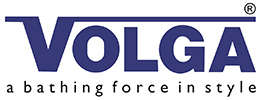- Home Page
- Company Profile
-
Our Products
- Coral Collection Volga
- Continental Collection Riva
- Pearl Collection Volga
- Moon Collection Volga
- Allied Collection Volga
- Onyx Collection Riva
- Lotus Collection Riva
- Rose Collection Riva
- Prince Collection Volga
- Fusion Collection Volga
- Desire Collection Riva
- Opal Collection Volga
- Sapphire Collection Volga
- Flora Collection Riva
- Sensors Collection Volga
- Royal Collection Volga
- Sumo Collection Volga
- Flora Collection Bathroom Accessories
- Versa Collection Volga
- Bathroom Fittings & Accessories
- Cubix Collection Riva
- Squaro Collection Volga
- Choras Collection Volga
- Taj Collection Volga
- Arya Collection Volga
- Blog

Discover Effective Strategies for Sourcing from a Reliable Faucet Manufacturer
In today’s competitive market, sourcing high-quality products is crucial, especially for businesses in the home improvement and plumbing sectors. One of the key components in this supply chain is partnering with a reliable faucet manufacturer. The right manufacturer not only ensures product quality but also significantly influences your brand's reputation and customer satisfaction. Understanding effective strategies for sourcing from reputable faucet manufacturers can help businesses navigate this complex landscape and forge long-lasting partnerships that drive success.
As you embark on this journey of finding the ideal faucet manufacturer, it is essential to consider various factors such as production capabilities, quality control processes, and service reliability. Each manufacturer has unique strengths and weaknesses, and recognizing these can help you make informed decisions. This blog will explore effective strategies for identifying and sourcing from trusted faucet manufacturers, equipping you with the insights needed to elevate your business and meet the growing demands of your customers.

Identifying Key Attributes of a Reliable Faucet Manufacturer
When sourcing from a reliable faucet manufacturer, identifying the key attributes that signify reliability is paramount for businesses aiming to enhance their product offerings. According to a recent industry report by Grand View Research, the global faucet market is projected to reach $14.4 billion by 2026, highlighting the growing demand for quality fixtures. This increase emphasizes the importance of selecting manufacturers that prioritize quality, durability, and design innovation. One critical attribute to consider is a manufacturer’s reputation within the industry. Research from IBISWorld indicates that companies with a strong brand presence and positive customer reviews tend to offer higher-quality products. Manufacturers that invest in advanced technology and sustainable practices are also more likely to deliver consistent results, as they adapt to market trends and regulatory standards. This commitment to innovation often correlates with better performance and customer satisfaction rates. Additionally, examining the certifications and standards a manufacturer adheres to can provide valuable insights into their reliability. Organizations such as ANSI and NSF International set forth strict criteria for plumbing fixtures. A manufacturer’s compliance with these standards not only ensures product safety but also reinforces their credibility in the market. Ultimately, sourcing from a reliable faucet manufacturer involves thorough research and evaluation of these key attributes, allowing businesses to make informed decisions that will elevate their product lines and meet evolving consumer expectations.

Evaluating Quality Standards in Faucet Production
When sourcing from a reliable faucet manufacturer, ensuring that the quality standards in faucet production are thoroughly evaluated is crucial. Quality control plays a significant role, as it not only affects product durability and performance but also impacts the reputation of the brands associated with these products. A reputable manufacturer should adhere to international quality standards such as ISO 9001, which emphasizes effective quality management systems. This certification serves as a benchmark, indicating that the manufacturer prioritizes quality throughout their production processes.
In addition to certifications, it is important to investigate the materials used in faucet production. High-quality faucets are typically crafted from materials like brass or stainless steel, which offer enhanced strength and corrosion resistance. Prospective clients should seek manufacturers who provide transparency regarding their material sourcing and production methods. Inspecting raw materials and finished products can help buyers understand the manufacturer’s commitment to quality.
Lastly, customer reviews and testimonials can provide valuable insights into a manufacturer’s reliability. Engaging with previous customers allows potential buyers to gauge the performance and longevity of the faucets produced. Seeking out manufacturers who have a strong track record of quality and excellent customer service can significantly enhance the sourcing experience, ensuring access to high-quality faucets that meet industry standards.

Exploring Supplier Certifications and Compliance Requirements
When sourcing from a reliable faucet manufacturer, understanding supplier certifications and compliance requirements is critical to ensure product quality and safety. According to a report by the International Association of Plumbing and Mechanical Officials (IAPMO), over 75% of plumbing-related accidents stem from non-compliant products. This highlights the importance of selecting manufacturers that adhere to industry standards and certifications.
One of the primary certifications to look for is the NSF/ANSI 61, which evaluates the safety of drinking water system components. Manufacturers with this certification demonstrate that their products do not leach harmful contaminants into the water supply. Furthermore, the American National Standards Institute (ANSI) also provides standards for water-efficient fixtures, highlighting manufacturers who contribute to water conservation efforts—a significant concern as the World Resources Institute projects that by 2025, 2 billion people will be living in water-stressed areas.
Additionally, compliance with the WaterSense program, overseen by the Environmental Protection Agency (EPA), can offer insights into a manufacturer's commitment to sustainability and efficiency. Faucets bearing the WaterSense label are independently certified to use at least 20% less water than standard models, effectively reducing water bills and contributing to environmental conservation. Manufacturers that meet these requirements not only ensure compliance but also align with global sustainability goals, making them more appealing to conscientious consumers and businesses alike.

Best Practices for Negotiating Terms with Faucet Manufacturers
When sourcing products from a faucet manufacturer, effective negotiation is key to securing favorable terms that align with your business goals. First and foremost, it’s essential to conduct thorough research on potential manufacturers. Understanding their production capabilities, quality standards, and previous client experiences can give you leverage when discussing terms. Prepare a list of your requirements and be ready to articulate your expectations clearly. This foundation will bolster your position in negotiations.
Another critical strategy is to foster a good relationship with the manufacturer. Building rapport can create a cooperative environment conducive to negotiation. Engage in open dialogue about your needs and concerns, and be receptive to their input. This collaborative approach not only enhances communication but also cultivates trust, which can lead to more favorable terms, such as price breaks or flexible payment options.
Additionally, consider the timing of your negotiations. Manufacturers often have specific periods of high demand and low demand, which can influence their willingness to negotiate. Approach negotiations during slower periods, as manufacturers may be more open to accommodating your requests. Lastly, don’t shy away from negotiating terms beyond prices, such as lead times, minimum order quantities, and warranties. Addressing these areas can significantly impact the overall value of your sourcing agreement.
Building Long-Term Relationships with Your Faucet Supplier
Building long-term relationships with your faucet supplier is essential for ensuring a smooth and efficient sourcing process. Such partnerships can lead to improved product quality, better pricing, and enhanced communication. To cultivate these relationships, it is important to start with clear and open communication. Discuss your specific needs and expectations with the manufacturer, ensuring that both parties are aligned from the beginning. Regular check-ins and updates can help to maintain this dialogue, solidifying trust and understanding over time.
Another strategy to strengthen your relationship with your faucet supplier is to engage in consistent collaboration. Providing feedback on their products and services not only shows that you value their contributions but also encourages them to make necessary improvements. Working together on new designs or product innovations can create a sense of partnership and shared goals. This collaborative approach fosters loyalty and commitment, ultimately benefitting both businesses.
Additionally, consider showing appreciation for your supplier’s efforts. A simple gesture such as acknowledging their hard work or celebrating milestones can go a long way in building goodwill. Suppliers are more likely to prioritize clients who recognize their contributions and who they feel a strong bond with. By implementing these strategies, you can establish a stable, long-term relationship that leads to increased efficiency and mutual success in the competitive faucet market.
Developed and Managed by Infocom Network Private Limited.



